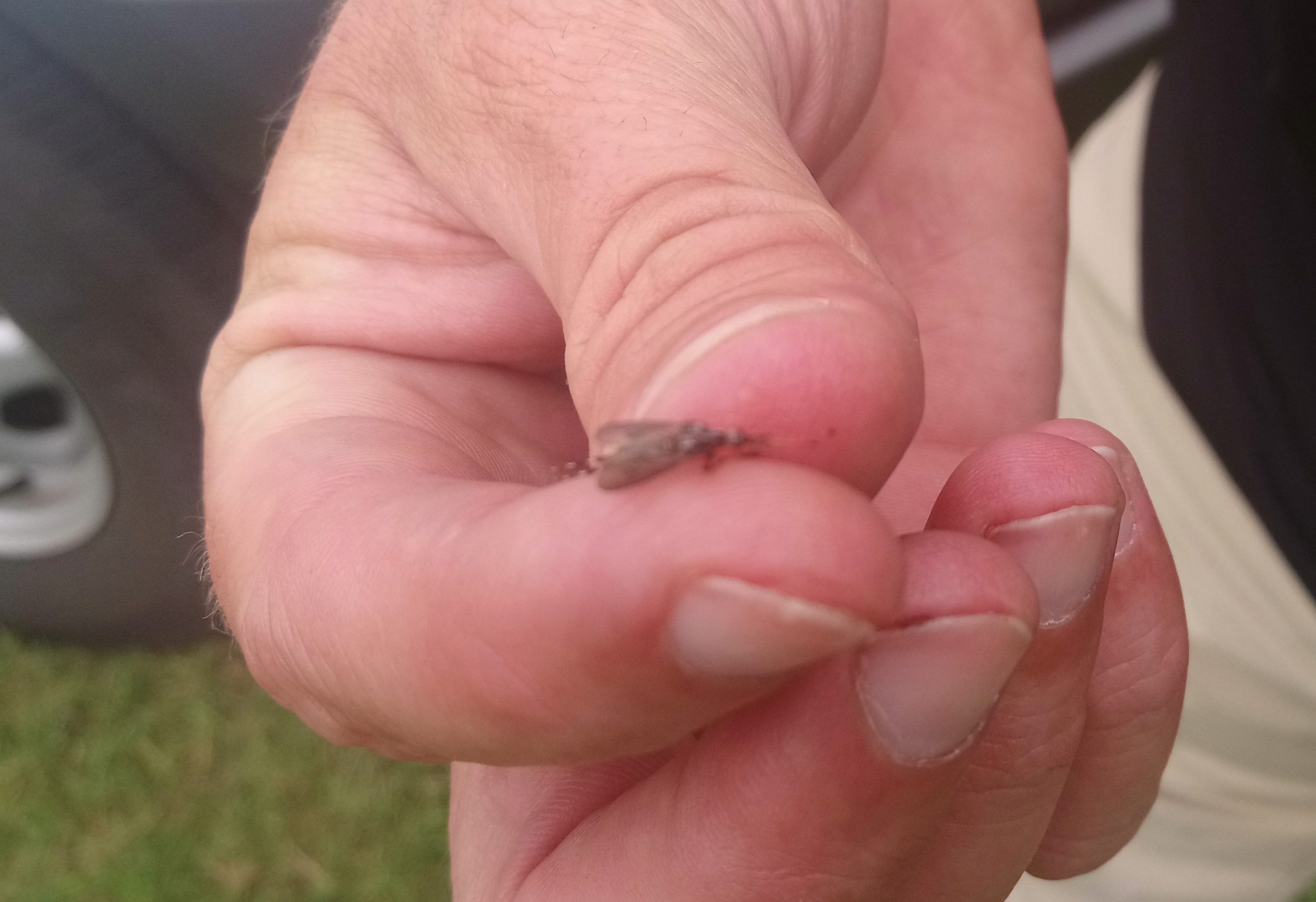Unsung Heroes of Bossier: Mosquito Control

There are jobs that go unnoticed by most of us as we go on our daily routines. Often we won’t
give them a second thought because if they are performed well we won’t notice their impact.
That is until something doesn’t work or causes a nuisance. Take mosquitoes for example, we
know that Louisiana has its share and yet there is a surprising lack of mosquitoes in many
Bossier neighborhoods given that northwest Louisiana is an ideal breeding ground for the
bloodthirsty insects.
Now while some may disagree that most suburban areas around Bossier aren’t as bothered by the winged pests, still for a city that is surrounded by lakes, rivers, bayous, and yes even swamps; most neighborhoods don’t suffer from massive swarms as in the past.
This is thanks to one city department and its staff whose mission is to do battle with the winged
pestilence and it’s a battle fought on the city streets, ditches and ponds every single day.
Mosquito Academy
 Dale Keeler, superintendent in Bossier City’s Public Works Department oversees mosquito control which has a small staff of full-time and part-time employees. He explained that controlling mosquitoes is a lot more technical that most people realize.
Dale Keeler, superintendent in Bossier City’s Public Works Department oversees mosquito control which has a small staff of full-time and part-time employees. He explained that controlling mosquitoes is a lot more technical that most people realize.
“We actually went down to Baton Rouge to attend a mosquito academy,” he explains. “And we
learned a lot more than what we could by just reading a book.”
Despite being a nuisance to humans and animals, mosquitoes do serve a useful purpose.
“Believe it or not, some mosquitoes will actually help with plant pollination,” Keeler said.
But it is the nuisance part that makes mosquitoes undesirable. Especially when you consider
how they can impact public health.
Mosquito Spraying & Mitigation
The job of mosquito control has a simple concept but it takes careful planning and controls to be
effective. One step is to prevent breeding, the second is to spray.
Michael Griffith, a Mosquito Technician for Bossier City says they go out and check for areas
with standing water for mosquito larvae. Standing water ranges from small puddles to flooded
ditches and areas with poor drainage.
It is in these areas that mosquitoes breed and lay eggs that hatch into aquatic larvae called
“wigglers” that will become mosquitoes in just a matter of days. And it doesn’t take much water
for a mosquito larvae to survive into an airborne adult.
“A larva can survive in a bottle cap with water,” explains Griffith. “This is why it’s important for
people to remove any standing water from near their home in pots, old tires, cans, anything that
can hold water can be a breeding place for mosquitoes.”

Once a wet area is determined to have mosquito larvae, Griffith will deploy a larvaecide in either a wafer or granule form and often will also spray the water with a coconut-oil based product that suffocates the larva’s air-breathing capability at the surface. While these products
are environmentally safe, not all areas with standing water will get treated.
“We’ll go out and check areas after a heavy rainfall and if we see any minnows,” Griffith said. “We won’t treat that water with larvaecide because the minnows will eat the mosquito larvae.”
Griffith used to be a mechanic, but he likes the change of pace with his new job.
“I like the peace and quiet, it’s kind of a solitary thing except for a little buzzing.”
Taking the Fight to the Streets
 Perhaps the most noticeable part of the job is the mosquito spray truck that cruises Bossier neighborhoods in the early evening hours. But unlike the huge fogger trucks of days past that would cloud up a city street, this sprayer has a barely noticeable atomized mist that is synced up with the speed of the truck for accurate spraying.
Perhaps the most noticeable part of the job is the mosquito spray truck that cruises Bossier neighborhoods in the early evening hours. But unlike the huge fogger trucks of days past that would cloud up a city street, this sprayer has a barely noticeable atomized mist that is synced up with the speed of the truck for accurate spraying.
“We have three trucks that do routes four nights a week,” Keeler explains. “And these trucks are
equipped with this sprayer control that matches its flow with the speed of the truck so the
neighborhoods aren’t getting too much or too little of the mosquito spray.”
Plus the trucks are GPS tracked and spray routes can be monitored from the main office to
verify neighborhoods have been sprayed.
“So if someone in Golden Meadows (a South Bossier Subdivision) says we weren’t in the neighborhood, I can pull up the database and see when the truck was there, the exact location, the speed and how much was sprayed per minute and at what time, so we’re pretty precise.”
Testing for Disease

A big part of mosquito control involves a little hunting and science as checking mosquito population for disease is important to public health.
“We trap mosquitoes one to two nights a week,” explained Keeler. “And what we’re trapping for is mosquitoes that carry vector-borne diseases which is West Nile Virus which is the one we’re really worried about around here.”
The captured mosquitoes are then transferred to Bossier Parish Mosquito Control where a staff
entomologist (an insect expert) sorts the different varieties of mosquitoes and then sends the
specimens to a Baton Rouge lab for testing. If any mosquito tests positive for disease such as
West Nile Virus, Bossier City and Parish mosquito control departments will be notified.
Colder Weather Means Less Activity
 The mosquito trucks will continue to spray until after October or early November depending on weather conditions. When the mercury drops and frost replaces early morning steam, the trucks will be used less often as most mosquitoes will eventually die out for the winter. But unless the winter has a longer freeze without a warm break, there will always be a chance for a brief resurgence.
The mosquito trucks will continue to spray until after October or early November depending on weather conditions. When the mercury drops and frost replaces early morning steam, the trucks will be used less often as most mosquitoes will eventually die out for the winter. But unless the winter has a longer freeze without a warm break, there will always be a chance for a brief resurgence.
“Mosquitoes are less active in colder months,” Keeler said. “They’ll always be around but so will
we.”
